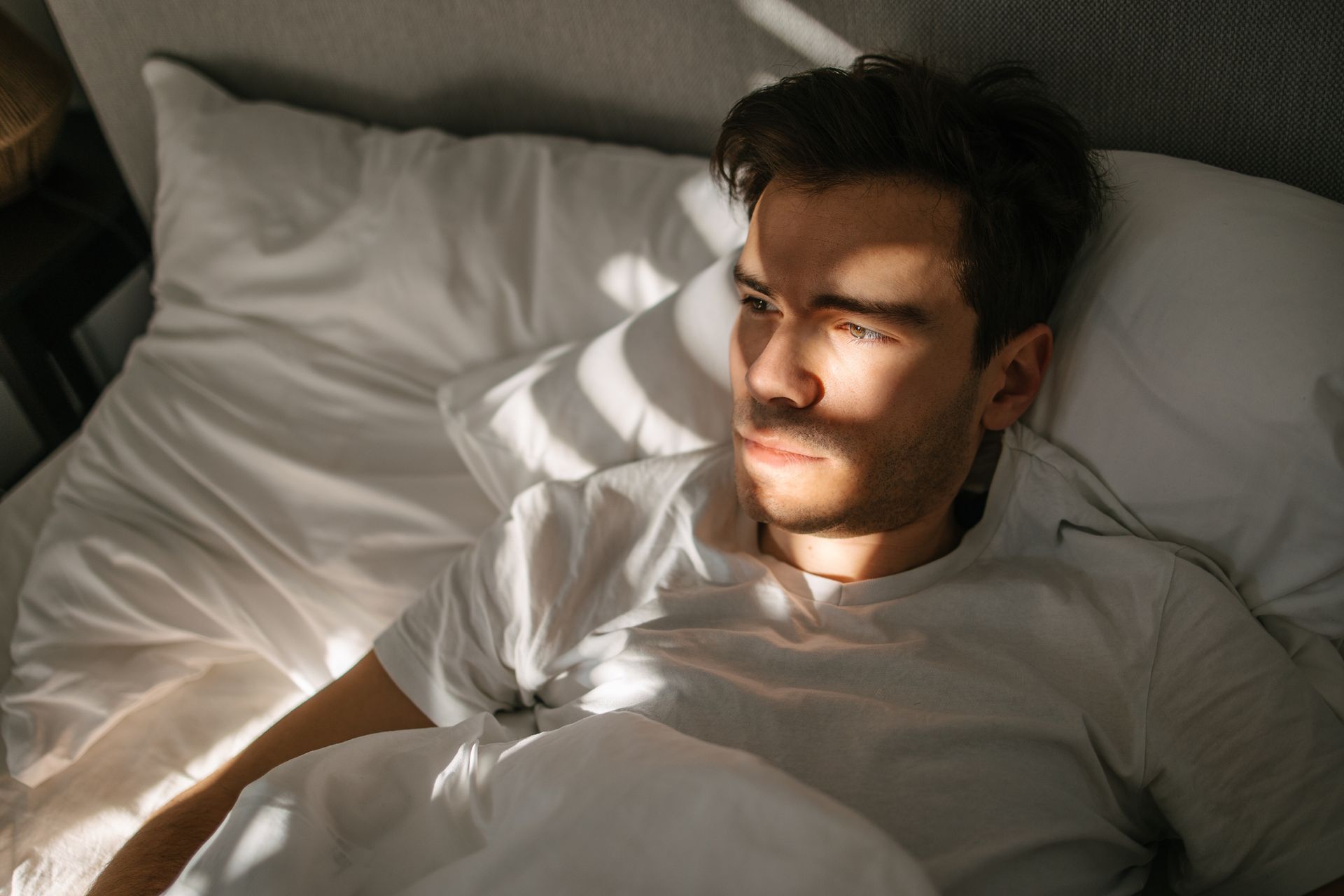How much sleep do you need?
June 14, 2025
Do you know how much sleep you should be getting? How much sleep should your children be getting each night? Read on...
The amount of sleep a person needs varies depending on age, lifestyle, and other individual differences. However, there are general guidelines that most people fall into. Here's a breakdown of recommended sleep durations based on age:
Recommended Sleep by Age
- Newborns (0-3 months):
- 14-17 hours per day
- Newborns sleep a lot, but in short bursts, and this helps with growth, brain development, and physical recovery.
- Infants (4-11 months):
- 12-15 hours per day
- Sleep is still crucial for development, and it’s typically spread across night sleep and naps.
- Toddlers (1-2 years):
- 11-14 hours per day
- Sleep needs start to consolidate into longer overnight periods, though naps are still important.
- Preschoolers (3-5 years):
- 10-13 hours per day
- Sleep continues to be important for development, but the naps might become shorter or less frequent.
- School-age children (6-13 years):
- 9-11 hours per day
- Children at this stage are growing rapidly, and sufficient sleep supports cognitive function and physical health.
- Teenagers (14-17 years):
- 8-10 hours per day
- Teenagers go through significant physical and mental development. However, many teenagers don't get enough sleep due to school schedules, socializing, and screen time.
- Young Adults (18-25 years):
- 7-9 hours per day
- Young adults still need solid sleep for mental health, memory, and physical recovery, but many people in this age group struggle with sleep due to busy lifestyles or irregular sleep schedules.
- Adults (26-64 years):
- 7-9 hours per day
- Sleep is essential for maintaining cognitive function, memory, immune function, and overall well-being.
- Older Adults (65+ years):
- 7-8 hours per day
- While older adults may sleep less overall, quality sleep is still important. Sleep patterns may shift, and there might be more frequent awakenings during the night.
Factors Affecting Sleep Needs
While age is a primary determinant, there are other factors that can influence how much sleep a person needs:
- Genetics: Some people function well on less sleep, while others need more. There are rare genetic variations (like the "short sleeper" gene) that allow people to feel rested with less sleep (around 4-6 hours), but this is very uncommon.
- Physical Activity: People who are very active may need more sleep for recovery, muscle repair, and energy restoration.
- Stress & Mental Health: High stress, anxiety, or depression can increase sleep needs, though sleep might be disturbed or less restful.
- Lifestyle Choices: Irregular schedules, screen time (blue light), caffeine intake, and alcohol can all affect sleep quality, leading to the need for more sleep or making it harder to feel rested.
Quality vs. Quantity
- Quality of Sleep is just as important as the quantity. You can spend 8 hours in bed, but if your sleep is fragmented (waking up frequently) or you don’t reach the deeper stages of sleep (like deep sleep and REM), you might still feel tired.
- Sleep Cycles: Each full sleep cycle (lasting approximately 90 to 120 minutes) includes stages of light sleep, deep sleep, and REM sleep. The more cycles you complete, the more restorative your sleep will be.
Signs You Might Need More Sleep
- Difficulty concentrating or remembering things.
- Feeling groggy or fatigued during the day.
- Increased irritability or mood swings.
- Struggling to stay awake or alert during routine activities.
If you feel rested after 7-8 hours of sleep, that’s likely your sweet spot. But if you’re regularly feeling tired, it’s worth experimenting with your sleep schedule or addressing factors that might be affecting your sleep quality. Need more help? Please reach out for an appointment to learn more about how you may be sleeping...





